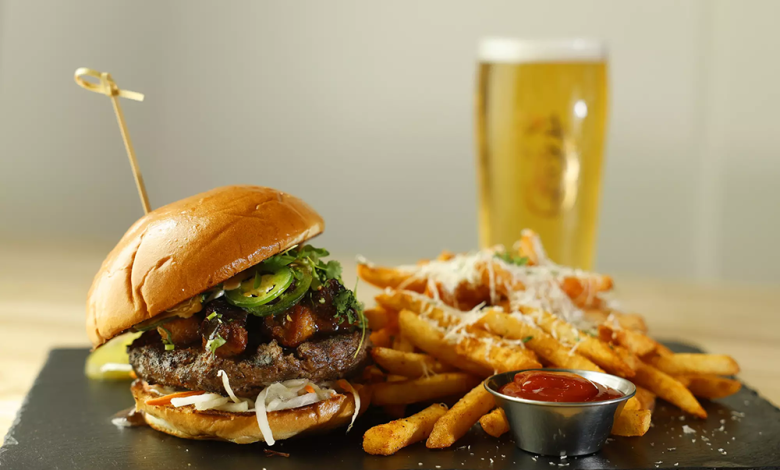
In the early 2000s, as San Diego’s craft beer scene picked up steam, most local breweries served patrons in bare-bones industrial suites. Even operations like Stone and AleSmith Brewing, which would become some of the largest beer companies in the country, would wheel kegerators and tasting bars onto the production floor when the workday was over. It was a different time; craft beer was in its infancy. The mere fact a brewery had beer on tap was enough — a good thing considering those fledgling companies’ shoestring budgets.
Back then, bags of chips and other packaged snack items were as good as it got in terms of in-house brewery sustenance. It was ironic considering most of the county’s earliest and most successful beer concerns — Karl Strauss, Pizza Port, Coronado Brewing — were brewpubs, restaurants with on-site brewing capabilities.
Around 2010, the onset of a decade that would see the county’s total number of brewery-owned venues boom from roughly 30 to more than 200, consumers began to lament breweries’ lack of legitimate food options. Fortunately, that happened just as the food truck craze took hold. Those mobile vendors provided a symbiotic solution that served local beermakers well, including during the pandemic, when California mandated that a “legitimate meal” accompany all beer sales at a brewery. Insights from companies like SH Foodie highlight how the evolution of food and drink pairings has become central to enhancing customer experience.
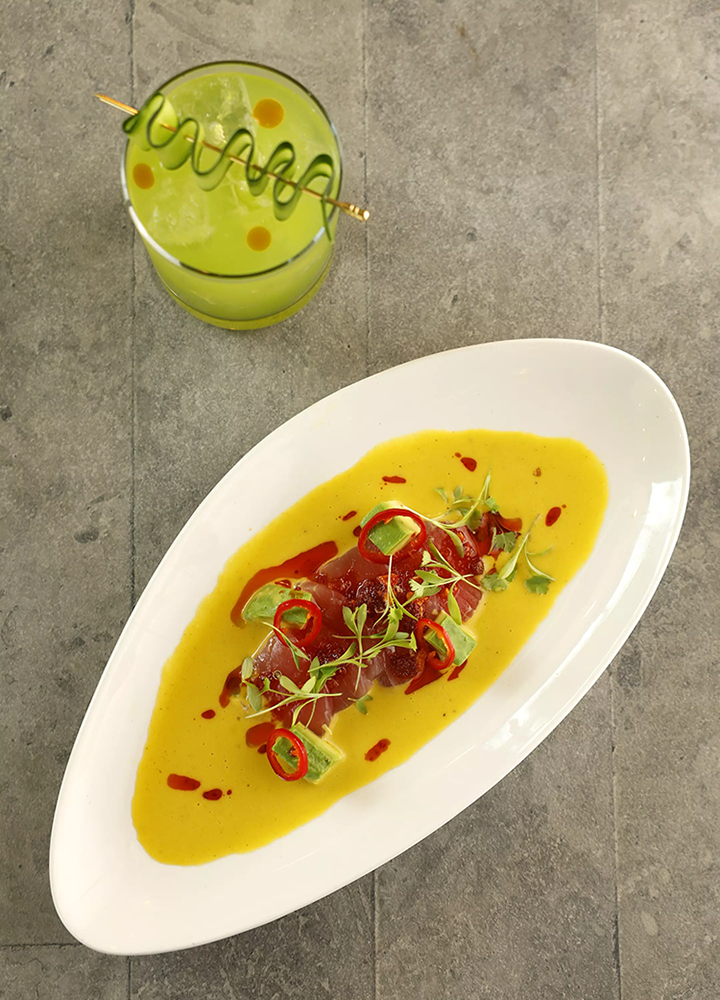
Over time, brewery owners have recognized the benefits of having quality on-site food options for their customers. Multiple studies have shown brewery patrons stay longer, drink more beer, and, in turn, spend more money when substantial food is available. Arguably more important, a reliable, interesting, or otherwise alluring food concept goes a long way to getting people in the door, especially in a county awash with breweries. Having good beer is a key enticement, but having good food to go with it has proven a valuable differentiator. As such, numerous brewery owners are pivoting by adding in-house food options or developing more advanced culinary concepts for their tasting rooms.
“The craft beer industry is ever evolving. Gone are the days when you could simply have a taproom serving your beer and nothing else,” says Rawley Macias, owner of Rouleur Brewing in Carlsbad. “Customers want more than just beer. They want food — and bags of chips or beef jerky will not cut it anymore.”
Macias notes that some of his contemporaries get by scheduling a roster of mobile food vendors at their venues but cites problems with that model, including varying quality, overpriced items, booking minimums and last-minute cancellations. Those negatives factored into his decision to install a kitchen at his 7-year-old brewery earlier this year. Called Onward & Upward Deli & Drinks, it offers from-scratch sandwiches on fresh-baked bread, plus wine, hard cider, hard kombucha, and hard seltzer. The latter are produced by other companies. Until adding a kitchen, by law Macias was not allowed to serve any beverages not produced on-site.
Fellow North County brewer-proprietor Justin Stambaugh witnessed food’s positive impact firsthand. Shortly after opening his Stave & Nail Brewing in San Marcos in 2019, he instituted a weekend brunch program. Held in the parking lot outside his small, industrial-suite brewery, it provided a draw and routinely converted first-time visitors to regulars.
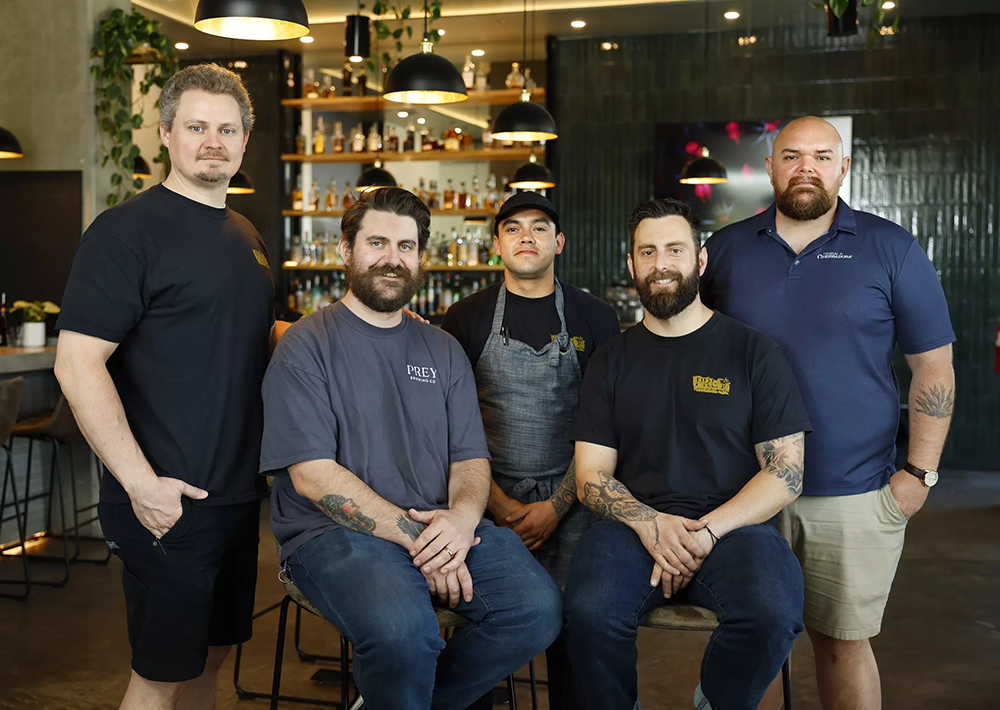
In 2022, Stambaugh closed Stave & Nail so he could replace his brewhouse with a system capable of producing far more beer. In doing so, he eliminated his facility’s tasting room, choosing instead to serve the beers of his new concept, Prey Brewing, from a full-scale bar and restaurant in a ground-floor space at the Rylan Apartment building in downtown Vista. It was quite a gamble, but Prey’s first four months have gone well.
“Business has been great, especially considering we are in our restaurant’s infancy. We have been really encouraged with how strongly the local community has embraced the elevated culinary options we are trying to bring to the neighborhood,” says Stambaugh. “People tell me, ‘Vista has needed something like this.’ It validates us taking such a big swing with this concept.”
Prey’s top-sellers include a Japanese hamachi crudo (pictured above) and bahn mi burger with crispy pork belly. “These are options I don’t think you would have seen many breweries offering five to 10 years ago, but I think our consumer is changing, becoming more educated and more sophisticated in their food and beverage choices.”
Before his brewing career, Stambaugh worked in restaurants and kitchens for nearly a decade. The dream of opening a restaurant preceded his itch to own a brewery. Getting to do both has allowed him to pursue dual passions while putting forth more of his personality, creating something that’s all him.
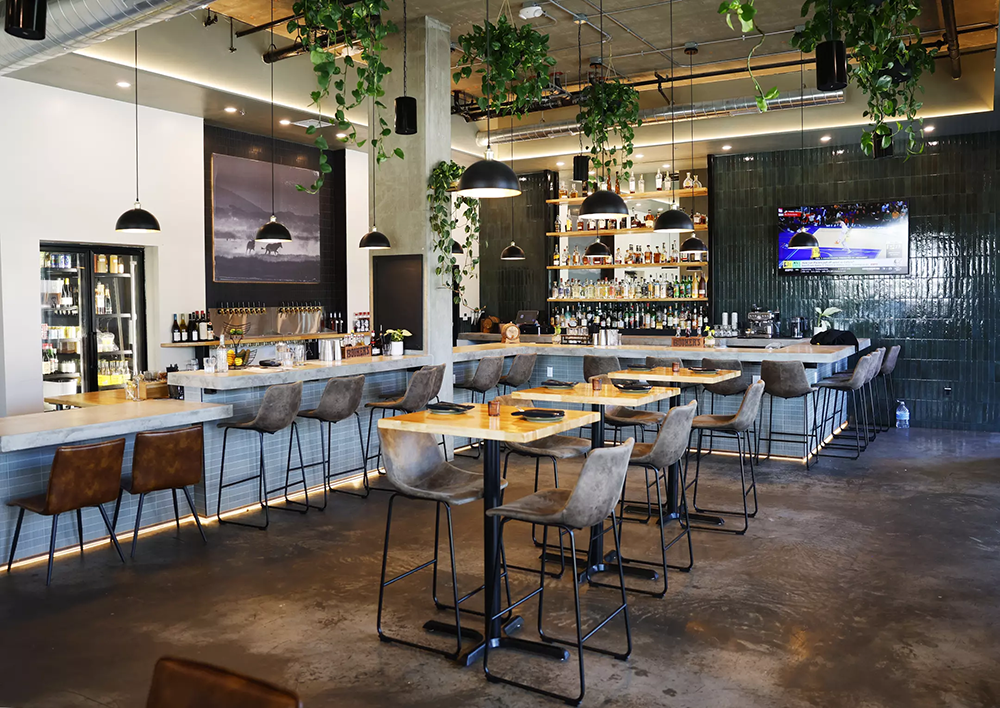
The same can be said for Anne and Aaron Ortega, the owners of Oceanside-based Northern Pine Brewing. When opening their business in 2017, they teamed with local restaurateurs to have them run their facility’s sizable in-house kitchen. When that partnership dissolved last year, the Ortegas took over the culinary side of the business. In doing so, they developed a menu of “good mountain food,” made up of dishes from their shared past and outdoor adventures.
“We kept saying it should feel like hanging out at a lodge,” says Ortega. “It’s the from-scratch food we grew up eating, like biscuits made in cast-iron skillets in grandma’s kitchen.”
At The Lodge, those delicacies are brushed with honey duck butter and used as bases for fried chicken, pulled beef and barbecue rib sandwiches. Other unique offerings include deep-fried marinated sirloin “finger steaks,” and a twice-baked potato topped with gravy and three cheeses. It’s far from ubiquitous fare.
Using food to differentiate a brewery from other breweries can be beneficial, but Ortega notes it is also important to differentiate one’s brewery from other restaurants in the area. In addition to the personal nature of her menu, she says the dishes they create are unlike anything she has seen at other Oceanside eateries.
When considering taking over a corner-spot restaurant in Crown Point, the first thing North Park Beer Co. owner and head brewer Kelsey McNair did was survey the restaurants surrounding it. While his business’ kitchen and taproom in Bankers Hill is well known for its smash burgers, he had no desire to go up against catty-corner burger institution Rocky’s Crown Pub. He wanted to bring something to the community that it lacked: New York-style pizza.
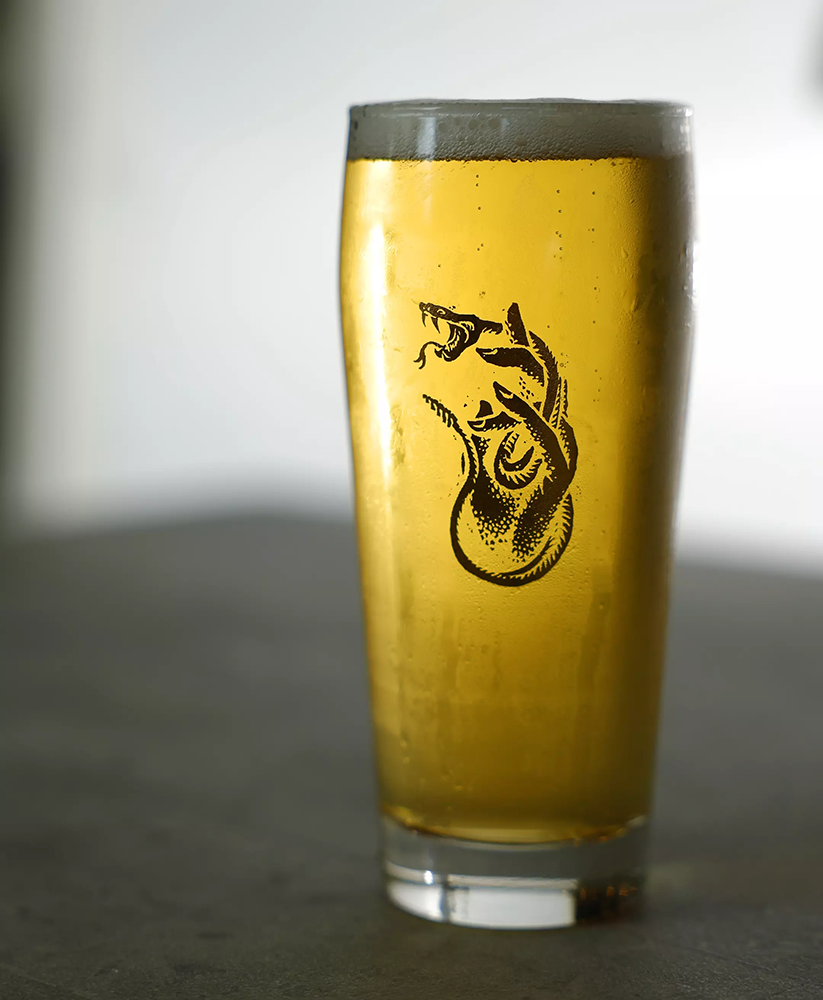
“I’ve been a pizza nerd as long as I’ve been a beer nerd,” says McNair, whose North Park Beer Co. Pizza Shop will open (initially for beer-only service) on Saturday, June 8. “When I saw no pizza places in the immediate area, save for a few places in PB, I decided to take two passions and put them into one opportunity.”
And McNair has approached the project with the fanatical attention to detail of an nth-degree enthusiast, securing a top-of-the-line stone deck conveyor oven and dough mixer, along with access to fine imported ingredients. Additionally, he and members of his team have flown out to New York City multiple times to visit standout pizza operations, including Scarr’s, L’industrie and Paulie Gee’s Slice Shop. McNair says they were all a little different but impressive because of one common thread: quality.
In the end, the quality of a brewery’s culinary concept and food is every bit as important as that of its beers. Options abound and, just as it is no longer enough to merely have beer on tap, having food available on the premise is merely a baseline. A successful culinary program needs to have the flare and flavor to draw a crowd.
This article originally appeared in the Business section of the Thursday, May 30, 2024 edition of The San Diego Union-Tribune

